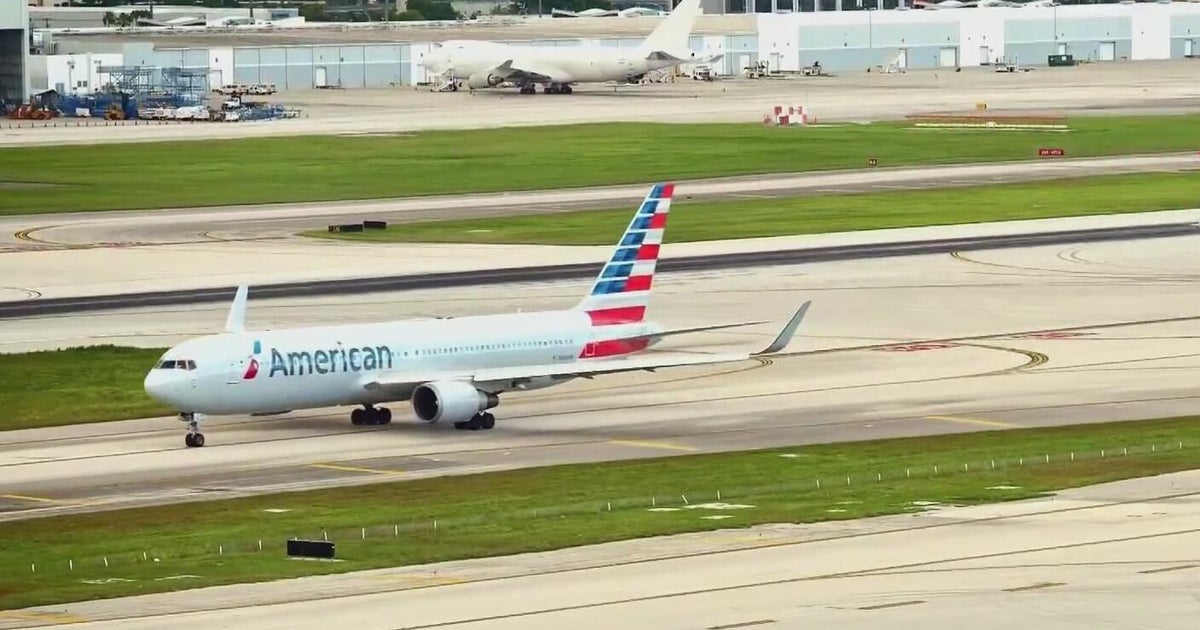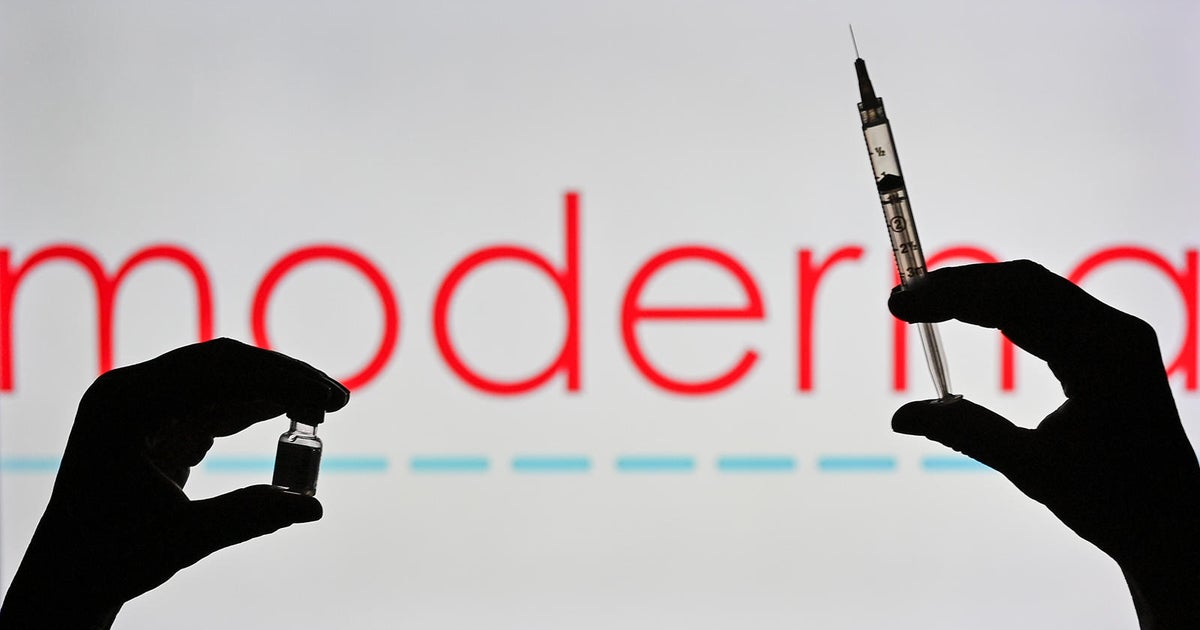Transcript: LabCorp CEO Adam Schechter on "Face the Nation," October 4, 2020
The following is a transcript of an interview with LabCorp CEO Adam Schechter that aired Sunday, October 4, 2020, on "Face the Nation."
MARGARET BRENNAN: LabCorp was the first commercial lab to offer COVID-19 diagnostic testing in March. CEO Adam Shechter joins us this morning from New Hope, Pennsylvania. Good morning to you.
LABCORP CEO ADAM SCHECHTER: Good morning, MARGARET. Thanks for having me here today.
MARGARET BRENNAN: Sure. You know, we heard that the president reportedly did take a PCR test, that kind of gold standard test to confirm his initial diagnosis. How reliable are the- the different testing platforms that we're talking about?
SCHECHTER: Sure, there's really three types of tests. There's the PCR test, as you mentioned. That test, it searches for the genetic material of the virus. It's seen as the gold standard, but it does take time to get the results for that test. When we receive a test, it takes us about 24 hours on average to return the results. The second test is an antigen test. That test you can do typically without machinery. And that test looks for a protein on the surface of the virus. It's less accurate than the PCR test, but it's certainly a good test for surveillance and trying to understand where the disease is. And the third type of test is an antibody test, which is a blood test. The first two are nasal swabs typically. The blood test searches for antibodies in your blood that tells you if you've had the virus in the past.
MARGARET BRENNAN: Is the kind of tool that the White House was using, these rapid tests, is that sufficient to detect the virus in asymptomatic people in your view?
SCHECHTER: Yeah, so the type of test that the White House was using, the Abbott test, is a PCR test, but it's not running as many iterations as the PCR test that we run. I think it's a acceptable test to try to screen for people, but it is certainly not sufficient. There's no doubt that people should continue to wear masks, socially distance, practice good hygiene, even if they have a negative result from that test.
MARGARET BRENNAN: So for LabCorp, you said that you can turn around a test within 24 hours. But as the country well knows, you know, this summer during that uptick, in particular, in July, there were backlogs for far longer than that. What do you need to do to avoid those backlogs as we get into the fall and winter?
SCHECHTER: Yeah, we've been building capacity since March of last year. We started from scratch. We're able to do two to 3,000 tests per day. We can now do over 200,000 per day. On average, we receive about 100,000 samples per day so we have additional capacity, but we're not stopping there. We're building more and more capacity. At the same time, we need people to do their part as we go into flu season. Get flu vaccinations, social distance, wear a mask, practice good hygiene. I believe that we are all preparing for that season. We also launched a combined test where you can test one nasal swab--
MARGARET BRENNAN: Right.
SCHECHTER: -- a combination of flu, RSV and also COVID.
MARGARET BRENNAN: But- but as you say, you're hoping to stay ahead of the curve this time. The testing companies like yours receive about $100 dollars per test from the current government program. If your company can't turn around results in two days, which is what Dr. Fauci says is necessary to actually be useful, why should your company be paid?
SCHECHTER: So we are doing everything we can to turn around those results as fast as possible. Every one of our 65,000 LabCorp employees around the world are working day and night. Our labs are open seven days a week, running 24 hours a day. There's no reimbursement that's going to cause us to move faster than we can. We want to move as fast as we possibly can. These are our friends, our families, our neighbors. So we're doing everything to have the best turnaround as possible. But I would say that as the turnaround time is longer, the usefulness of the test, particularly for tracking and tracing, is less. There's no doubt about it. But I disagree that it's useless after two days because if you find out in three days that you don't have the virus and you're feeling better and can go back to work, that's better than having to quarantine for 10 days.
MARGARET BRENNAN: Right. Well, as we've learned, some people, including lawmakers, are not quarantining even though they are taking tests at the same time. So are you saying clearly that LabCorp does not anticipate a backlog if we see infections continue to rise in the US? Can you avoid what happened this summer?
SCHECHTER: So we are building capacity every single day. We're at 200,000 tests a day right now and we will not stop. We're buying every machine we can, getting as much reagent as we can, doing everything we can to prepare for the fall flu season. But I really do encourage people to help us by getting the flu shot, by practicing social distancing. Masks work. We know they work. So if we do all those things, I think we're going to be in a good position going into the flu season.
MARGARET BRENNAN: All right, Mr. Schecter, thank you very much. We'll be back in a moment with some thoughts from voters across the country.
LABCORP CEO ADAM SCHECHTER: Good morning, MARGARET. Thanks for having me here today.
MARGARET BRENNAN: Sure. You know, we heard that the president reportedly did take a PCR test, that kind of gold standard test to confirm his initial diagnosis. How reliable are the- the different testing platforms that we're talking about?
SCHECHTER: Sure, there's really three types of tests. There's the PCR test, as you mentioned. That test, it searches for the genetic material of the virus. It's seen as the gold standard, but it does take time to get the results for that test. When we receive a test, it takes us about 24 hours on average to return the results. The second test is an antigen test. That test you can do typically without machinery. And that test looks for a protein on the surface of the virus. It's less accurate than the PCR test, but it's certainly a good test for surveillance and trying to understand where the disease is. And the third type of test is an antibody test, which is a blood test. The first two are nasal swabs typically. The blood test searches for antibodies in your blood that tells you if you've had the virus in the past.
MARGARET BRENNAN: Is the kind of tool that the White House was using, these rapid tests, is that sufficient to detect the virus in asymptomatic people in your view?
SCHECHTER: Yeah, so the type of test that the White House was using, the Abbott test, is a PCR test, but it's not running as many iterations as the PCR test that we run. I think it's a acceptable test to try to screen for people, but it is certainly not sufficient. There's no doubt that people should continue to wear masks, socially distance, practice good hygiene, even if they have a negative result from that test.
MARGARET BRENNAN: So for LabCorp, you said that you can turn around a test within 24 hours. But as the country well knows, you know, this summer during that uptick, in particular, in July, there were backlogs for far longer than that. What do you need to do to avoid those backlogs as we get into the fall and winter?
SCHECHTER: Yeah, we've been building capacity since March of last year. We started from scratch. We're able to do two to 3,000 tests per day. We can now do over 200,000 per day. On average, we receive about 100,000 samples per day so we have additional capacity, but we're not stopping there. We're building more and more capacity. At the same time, we need people to do their part as we go into flu season. Get flu vaccinations, social distance, wear a mask, practice good hygiene. I believe that we are all preparing for that season. We also launched a combined test where you can test one nasal swab--
MARGARET BRENNAN: Right.
SCHECHTER: -- a combination of flu, RSV and also COVID.
MARGARET BRENNAN: But- but as you say, you're hoping to stay ahead of the curve this time. The testing companies like yours receive about $100 dollars per test from the current government program. If your company can't turn around results in two days, which is what Dr. Fauci says is necessary to actually be useful, why should your company be paid?
SCHECHTER: So we are doing everything we can to turn around those results as fast as possible. Every one of our 65,000 LabCorp employees around the world are working day and night. Our labs are open seven days a week, running 24 hours a day. There's no reimbursement that's going to cause us to move faster than we can. We want to move as fast as we possibly can. These are our friends, our families, our neighbors. So we're doing everything to have the best turnaround as possible. But I would say that as the turnaround time is longer, the usefulness of the test, particularly for tracking and tracing, is less. There's no doubt about it. But I disagree that it's useless after two days because if you find out in three days that you don't have the virus and you're feeling better and can go back to work, that's better than having to quarantine for 10 days.
MARGARET BRENNAN: Right. Well, as we've learned, some people, including lawmakers, are not quarantining even though they are taking tests at the same time. So are you saying clearly that LabCorp does not anticipate a backlog if we see infections continue to rise in the US? Can you avoid what happened this summer?
SCHECHTER: So we are building capacity every single day. We're at 200,000 tests a day right now and we will not stop. We're buying every machine we can, getting as much reagent as we can, doing everything we can to prepare for the fall flu season. But I really do encourage people to help us by getting the flu shot, by practicing social distancing. Masks work. We know they work. So if we do all those things, I think we're going to be in a good position going into the flu season.
MARGARET BRENNAN: All right, Mr. Schecter, thank you very much. We'll be back in a moment with some thoughts from voters across the country.



